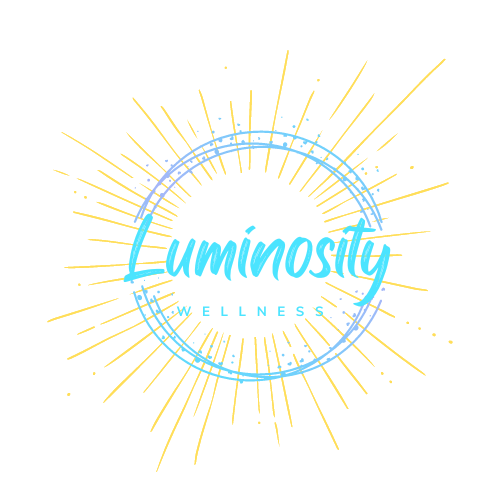Are you wondering what all the fuss is about going “gluten-free”? It is far more prevalent today, and thankfully it is easier than ever to follow a gluten-free diet!
Gluten is the general term for a group of proteins found in grains such as wheat, barley, and rye. Gluten acts as the “glue” that holds the grain together and allows it to keep its shape.
Gluten can be found in breads, pastas, doughs, baked goods, cereals, and more unsuspecting places like cross-contaminated oats, soy sauce, salad dressings, condiments, deli meats, cheeses, fried foods, candy, alcohol, medications, supplements, cosmetics, and more.
Many people have sensitivities to gluten, often without knowing it. Going gluten free is especially important for people with autoimmune thyroid disease and celiac. It can also affect digestion and create inflammation all over the body, leading to joint pain, brain fog and even skin problems like eczema, psoriasis and acne.
One of the easiest ways to guide you on a decision about going gluten free is to see if you have gluten sensitivity by eliminating it from your diet to see if symptoms improve. You need to eliminate this from your life for at least 30 days to give your body time to reset and see if gluten is a culprit in your symptoms. This is also something you can test for through several functional laboratories, but eliminating it is an easy and cost effective way to check.
If you are committed to trying a gluten-free challenge – it’s important to understand that there are gluten-free foods that cross react with Gluten (meaning they have the same effects/symptoms on your body as eating Gluten would). How about that?
So here’s some of the important highlights about doing a gluten free challenge –
- You will not heal your gut/immune system by eating a gluten-free diet alone (in other words including “faux/fake gluten).
- There is a high correlation between Hashiomoto’s autoimmune thyroid disease & celiac as well as “non-celiac” gluten sensitivity. This is due to the leaky gut syndrome and the negative effects the Standard American Diet has on our bodies.
- If you have Hashimoto’s, you must eat gluten/grain/sugar/starch/dairy/alcohol free in order to heal your gut. This helps to support your immune system and reduce inflammation – which continues to allow the immune system to attack the Thyroid in the first place.
- If you eat foods that have the same effect as Gluten (especially as a Hashimoto sufferer) the immune system will continue to attack the Thyroid.
- HEAL THE GUT! If you are eliminating gluten from your diet, you should also be taking supportive measures to heal your gut! This will help your body thrive in the future!
So what are the foods that cross react with Gluten?
-
Cow dairy (50% of those who are gluten intolerant are sensitive to dairy)
-
American cheese
-
Milk chocolate
-
Sesame
-
Hemp
-
Rye
-
Barley
-
Polish wheat
-
Buckwheat
-
Sorghum
-
Millet
-
Spelt
-
Amaranth
-
Quinoa
-
Yeast
-
Tapioca
-
Oats
-
Coffee (has the highest rate of cross reaction with gluten – from this list!!)
-
Corn
-
Rice
-
Potato
-
Eggs (while not on the original source, I found it on another site and added it)
It is important to note that it matters as much what your diet is full of as what it is free- from…so make your gluten-free choices supportive to well-balanced overall nutrition in the long term. Think less pre-packaged “gluten-free alternatives” and more whole-foods nutrition!
- Swap gluten containing foods for starchy and non-starchy vegetables to help you get in a rainbow of fruits and vegetables more often.
- Ensure that you get plenty of fiber quality proteins to help you feel full and satisfied.
- If you are working to heal your body, whether from gluten or health issues, better quality for what goes in and on your body most often is critical to the healing process. Choose USDA organic when available for food, beverages, supplements and even the cotton in your underclothes and sheets to reduce exposure to chemical residues that can disrupt, irritate and overwhelm the body’s healing efforts.
- Confirm that your supplements are gluten-free but also that they are delivering your body what it needs to run better, more often. For support in your supplement regimen, we are always here to consult!
- If you need to avoid gluten for medical reasons, it is important to remember that your nutrition includes what goes in and on your body, so that means looking at your skincare, beauty and even your laundry and cleaning products as they may be ones your skin comes in contact with quite frequently. Consider essential oils and wool dryer balls versus dryer sheets or use clean beauty products that clearly identify as gluten- free.
For great guides on clean, healthy foods, seafood, cleaning supplies, makeup etc. check out the Environmental Working Group and explore their amazing resources. For one-on-one support in making dietary changes, such as a gluten-free challenge, give our office a call! It’s best to do this with proper support and guidance!
